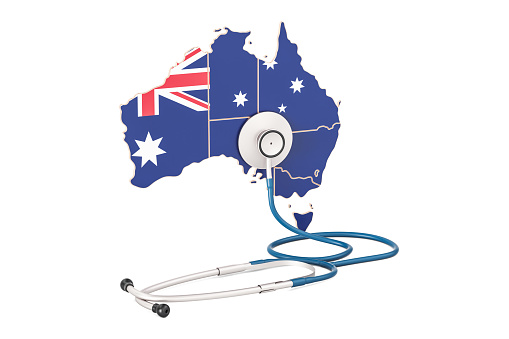Healthcare jobs in Australia are ranked among the top 12 in the world according to LPI 2020 ranking. It ranks in the top 10 in 2020. CEO World placed it in the top 3 in 2021. Source
Australia provides free or subsidized access to health services to its residents including general practitioner consultations, pathology tests, and hospital treatment through a public system called Medicare.
However, this article will show you the 10 high-in-demand healthcare jobs in Australia in 2023 which are not covered by Australian Medicare.
Here’s your chance to plant your best foot forward.
What the Medicare in Australia Doesn’t Cover
Patients may consider taking out private health insurance or paying out-of-pocket costs for some services.

These are not necessarily the 10 high-in-demand healthcare jobs in Australia. But you also stand a chance to live and work in Australia doing the following:
- Elective cosmetic surgery.
- Most dental services
- Ambulance services
- Glasses and contact lenses
- Alternative therapies
- Travel vaccinations
However, the 10 high-in-demand healthcare jobs in Australia fill in someplace.
10 High In-demand Healthcare Jobs in Australia in 2023
Healthcare workers provide patients with preventive medication, education, and counseling on health issues.
Here are 10 High In-demand Health care Jobs in Australia in 2023:
- Registered Nurses
- General Practitioner
- Physiotherapist
- Occupational Therapist
- Medical Lab Scientist
- Radiographer
- Dental Therapist
- Optometrist
- Speech Pathologist
- Psychologist
#1. Registered Nurse: $80,520
A registered nurse is responsible for providing care to patients in various healthcare settings, including hospitals, clinics, and aged care facilities. They assess patient needs, develop care plans, and administer medications and treatments.
#2. General Practitioner (GP): $253,000
A GP is a medical doctor who provides primary care to patients, diagnosing and treating a wide range of illnesses and conditions. They also provide preventive care and health education.
#3. Physiotherapist: $95,000
A physiotherapist helps people with physical disabilities or injuries to recover and improve their physical function. They use exercises, manual therapy, and other techniques to help patients manage pain and improve mobility.
#4. Occupational Therapist: $72,000
An occupational therapist works with people who have physical, mental, or cognitive disabilities to help them regain or maintain their ability to perform daily activities. They use a range of interventions, including exercise, assistive devices, and modifications to the environment.
#5. Medical Lab Scientist: $82,017
A medical lab scientist performs tests on patient samples to help diagnose and treat diseases. They use specialized equipment and techniques to analyze blood, urine, and other bodily fluids.
#6. Radiographer: $85,391
A radiographer uses x-rays and other imaging techniques to diagnose and treat a range of medical conditions. They work closely with other healthcare professionals to provide high-quality patient care.
#7. Dental Hygienist: $80,550
A dental therapist provides preventive dental care, including cleaning teeth, applying fluoride treatments, and educating patients on good oral hygiene practices.
#8. Optometrist: $125,000
An optometrist is a healthcare professional who specializes in eye health. They examine patients’ eyes to detect and treat vision problems, prescribe corrective lenses, and provide advice on eye care.
#9. Speech Pathologist: $95,000
A speech pathologist helps people with communication and swallowing disorders. They work with patients of all ages, including children with speech delays and adults recovering from strokes or head injuries.
#10. Psychologist: $95,000
A psychologist is a mental health professional who provides counseling and therapy to help people manage a range of mental health issues, including anxiety, depression, and trauma. They may work with individuals, families, or groups, and they often collaborate with other healthcare professionals to provide comprehensive care.
Salaries are per annum.
Requirements To Work As A Health Care Worker In Australia
You must meet certain requirements unique to the 10 high-in-demand healthcare jobs in Australia. However, look up the general criteria to qualify as a health carer in Australia:
#1. Registration
Many healthcare professions in Australia require registration with a regulatory body, such as the Australian Health Practitioner Regulation Agency (AHPRA). The registration requirements vary depending on the profession but usually involve completing a qualification that is recognized by the regulatory body and meeting certain standards of practice.
#2. Qualifications
The qualifications required vary depending on the profession and can range from a diploma or certificate to a bachelor’s or master’s degree.
#3. English Language Proficiency
As a Healthcare worker in Australia, you should have a high level of English language proficiency, you need to be able to communicate effectively with patients and other healthcare professionals.
#4. Working With Children Check
You may be required to undergo a Working with Children Check or a Police Check to ensure that you do not have a criminal history that may pose a risk to patients. As you’ll have contact with children or vulnerable people
#5. Occupational Health And Safety (OHS)
You must comply with OHS regulations to ensure that you and your patients are safe in the workplace.
#6. Continuing Professional Development (CPD)
It’s important to undertake CPD while maintaining your area of specialty. This will up your game with innovative ways to work.
You must have a valid work visa or be a citizen or permanent resident of Australia to work as a health carer.
FAQS
#1. What Visa Types Are Required For Health Carer Jobs In Australia?
Some common visa types that apply to healthcare workers in Australia are:
- Skilled Work Regional (Provisional) visa (subclass 491)
- Skilled Independent visa (subclass 189)
- Temporary Skill Shortage visa (subclass 482)
- Employer Nomination Scheme (subclass 186)
#2. Must I Have A Degree As A Health Caregiver In Australia?
Though degrees are not have-or-die for Healthcare services. However, it does take things two steps forward.
Conclusion
The 10 high-in-demand healthcare jobs in Australia in 2023/2030 is a long-term forecast that’ll help you leverage the gap of the Healthcare services shortages to your advantage.
First thing first. Get the job offer, then proceed to acquire the Australian work permit visa. Don’t forget, you’re here to heal the world. Stay safe.
“Do you know that Teaching Jobs are High in demand in Australia due to the Educational Crisis in Australia?”
When are you headed for Australia?
Cut costs and save more, and use travel credit cards.






